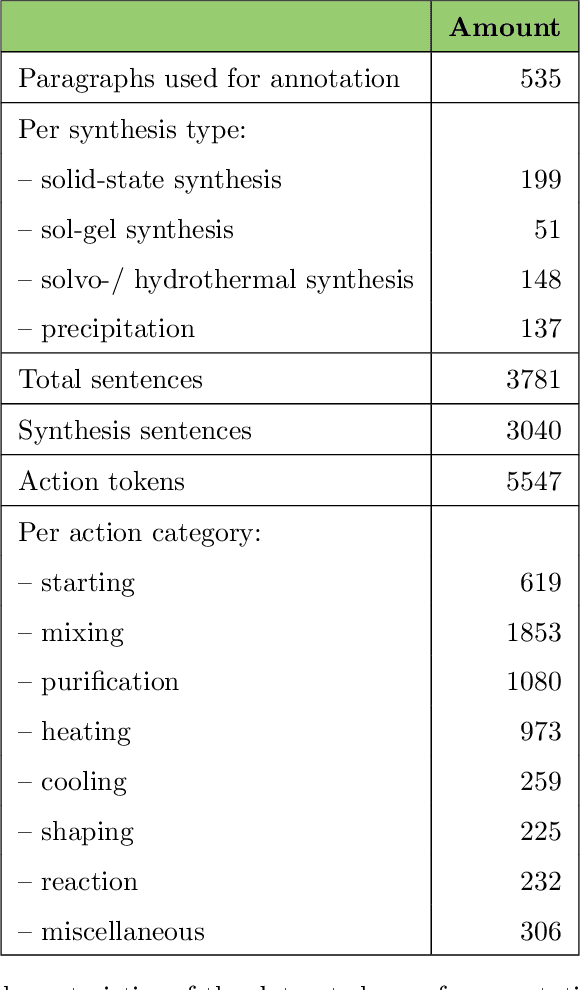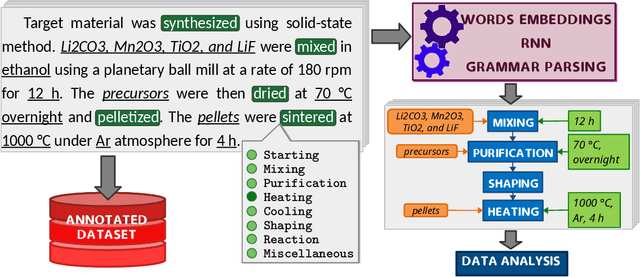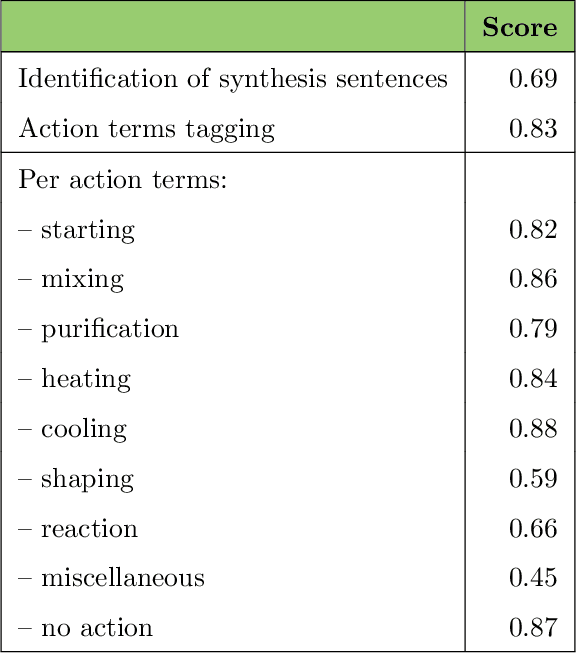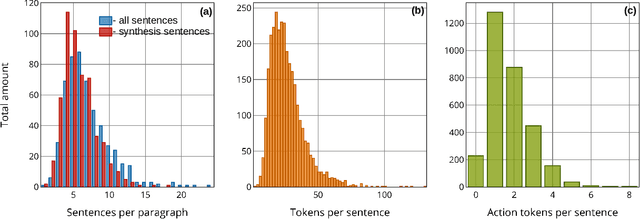Olga Kononova
ULSA: Unified Language of Synthesis Actions for Representation of Synthesis Protocols
Jan 23, 2022



Abstract:Applying AI power to predict syntheses of novel materials requires high-quality, large-scale datasets. Extraction of synthesis information from scientific publications is still challenging, especially for extracting synthesis actions, because of the lack of a comprehensive labeled dataset using a solid, robust, and well-established ontology for describing synthesis procedures. In this work, we propose the first Unified Language of Synthesis Actions (ULSA) for describing ceramics synthesis procedures. We created a dataset of 3,040 synthesis procedures annotated by domain experts according to the proposed ULSA scheme. To demonstrate the capabilities of ULSA, we built a neural network-based model to map arbitrary ceramics synthesis paragraphs into ULSA and used it to construct synthesis flowcharts for synthesis procedures. Analysis for the flowcharts showed that (a) ULSA covers essential vocabulary used by researchers when describing synthesis procedures and (b) it can capture important features of synthesis protocols. This work is an important step towards creating a synthesis ontology and a solid foundation for autonomous robotic synthesis.
The Vision and the Perspective of Digital Tourism
Sep 20, 2021



Abstract:The dynamics of the modern information society changes the usual areas of human activity, generates various innovations based on the widespread use of Information and Communication Technologies (ICTs). Virtually, every activity today is technology related. In these conditions, scientific activity is also changing. Digitalization processes act as integrative to various scientific directions, which form the base for interdisciplinary scientific research. The study of their formation is an important scientific task aimed at predicting the development of both science and society as a whole. In this study, based on the integrated use of ICTs, we consider methods of the terminology base analysis in various interdisciplinary research directions on the instance of tourism in the digital age. The development of scientific interest in the area of digital tourism in Russian and global scientific discourses is also compared. The purpose of this paper is to proof the relevance of scientific study in the field of tourism digitalization, to identify the generic directions and trends of digital tourism, and to specify technologies for the implementation of digital tourism using the case study of St. Petersburg.
* 22nd Conference on Scientific Services & Internet (SSI-2020), Novorossiysk-Abrau (online), Russia, September 21-25, 2020
 Add to Chrome
Add to Chrome Add to Firefox
Add to Firefox Add to Edge
Add to Edge